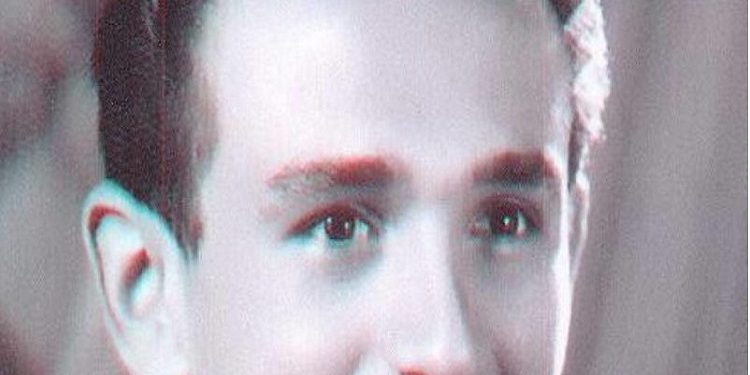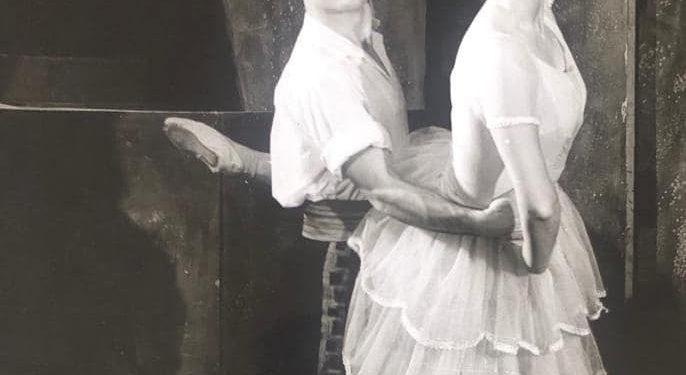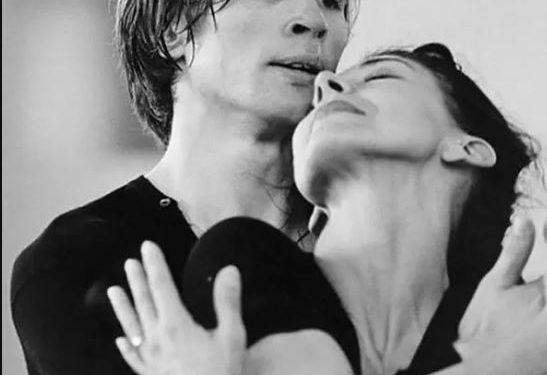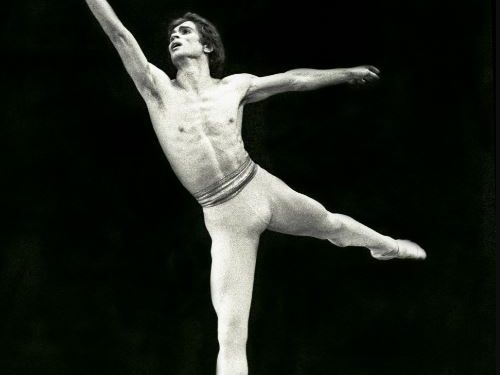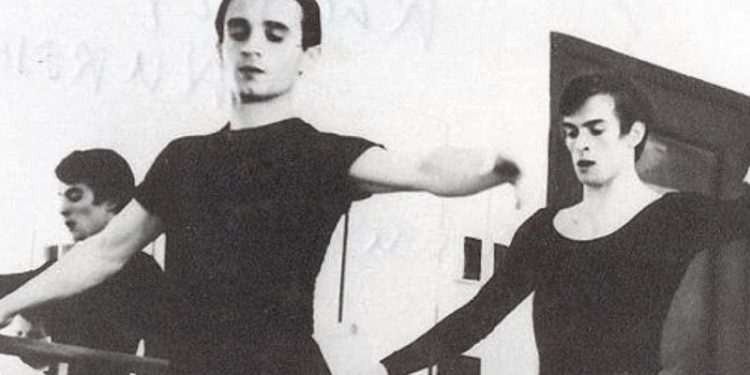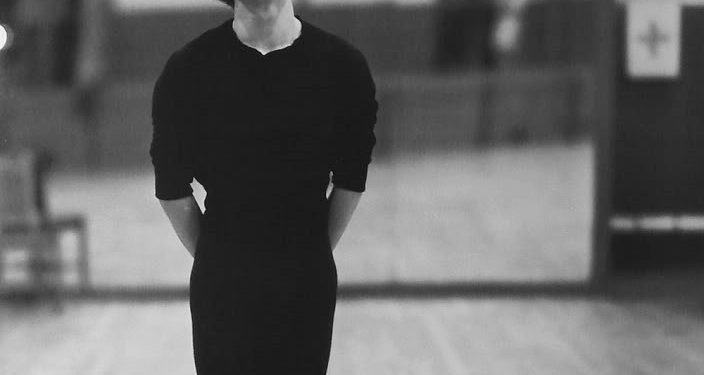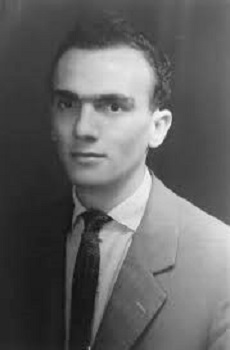Memorie.al / An incredible life. A dancer returning home after 58 years. He left in 1957 and returned on June 1, 2015. Timoleo Pappa, one of the most famous dancers in the world, escaped from Albania in 1957. He was just returning from the former Soviet Union, from a long tour of artistic activities (as a dancer) in an instant that the steamer stopped for several hours in Piraeus of Athens Timolea with a free spirit, escapes. For some time he was unbelievable, but the openness appeared in the eyes of the dancer and dancer, who in a few years would become the most heard in the world next to the world-famous Russian dancer, Nureyev. In the years 1957-1959, he would stay in Athens, where thanks to his talent he would be employed at the Theater of Opera and Ballet of Athens and later he would go to America. The presentation with him would be made by Prof. Ramazan Bogdani, who was his childhood friend.
A man known around the world, but your life is little known in Albania. Where were you born and how did you come to Tirana before World War II?
-I was born in Poliçan, Gjirokastra, in 1933 and came to Tirana after the Italian-Greek war. My father wanted to take us to Tirana. Since then, until 1957, I lived in Tirana. When I came to Tirana, I didn’t attend school right away, but I played outside with Italian children, when it was Italy time. Since in our village they spoke Greek, I did not know and learned Italian before and when I went to school, I also learned Albanian.
Where and how did you continue your education as a dancer?
I finished school at the Artistic High School (general culture). In February 1950, the professional group was created, next to the Albanian Philharmonic. After three months, we went on an artistic tour in five countries and represented the Albanian state as dancers. We have been to Bulgaria, Hungary, Romania, Poland, and Czechoslovakia. It has been a three-month tour, as we represented the state, where we have had tremendous success.
It was the choreographic spectacle called “Brotherhood of Peoples” that was staged by the Russian master Georgi Perkun. This famous dancer stayed in Albania for three years and gave important shows, such as “Brotherhood of Peoples” in 1950, the ballet “Bahçisarai Fountain” in 1951, the choreographic show “Flag of Peace” in 1952, and “Esmeralda” in 1953. All these important shows were for me the most beautiful part of my life, since I was a soloist in one of them, in “Flaguri i Paqes”. In the Opera and Ballet Theater, at that time, we had just started the first steps to learn ballet, so in many parts, we were dancers, while in operas such as (“Emeralda”) and “The Fountain of Bahçisarai” we were like ballerinas. .
After high school, how did your artistic life continue?
I was always in the theater. We went to Lyceum, from 08-00 to 11-00 and from 11-00 and back, we were professional dancers in the Dance Ensemble. Specifically, since February 1, 1950, when I was 17 years old, I was a professional dancer. After 11-00, we rehearsed to prepare for the theater performances. From 1950 to 1957, I was in the State Philharmonic. During this time, we gave various concerts in Albania as well.
Mr. Ramazan Bogdani told me that you, together with him, participated in the movie “Skenderbeu”?
Yes, I was present in the movie “Skënderbeu”. In 1953, he undertook to make the film “Skënderbeu”. An Albanian-Soviet film. The main role would be played by the Great Russian artist, Hakaki Horava. The director had set some sketches of the scheme, where he would also dance. He joined our group, where he would dance an epic dance, very simple. This dance, we worked here in the ballet hall, as well as the illustration of all that activity.
For this scene, different scenes were filmed, such as in Berat, the Wedding of Skenderbeu, or even in Shkodër, which take place before the fighting, then, here in the surroundings of Tirana, where the joys of Skenderbeu’s wedding take place. In all these scenes, we were present, together with the Dance Group of the Army Artistic Ensemble. So it was the Albanian Philharmonic Dance Ensemble and the Army Dance Ensemble.
From the concerts abroad, who will you single out?
In 1957, our Ensemble goes and performs at the Second International Youth Festival in Moscow and on the way back, the steamer stops in Piraeus. I had been thinking of escaping for a long time. In many countries, I saw that Albania was different; there was no freedom of speech. Freedom, the word of the heart, I had something that did not let me breathe freely. Right here in Piraeus, I thought of escaping. I didn’t make it long; I found a gap between those who accompanied us and the Renda between Piraeus, where to find the Police. Finally, I showed up there. Given that I knew the Greek language, I told them why I fled and asked for political asylum. They looked at me suspiciously. But I spoke as it was, insisting that I seek such a thing.
They provoked me for several days, but I remained true to my words. Immediately, the Soviet ambassador in Athens intervened, since we did not have our own embassy in Greece at that time. Sometime war of nerves and disbelief of persistence to return. But I persist, I want political asylum. I was stressed that they didn’t want to give it to me. Finally, they trusted me and gave me a record, in the form of a request, and I signed it. I lived in Athens for two years and worked at the State Opera, as a dancer, and later, I was for 25 years, at the State Opera and Ballet Theater of Athens.
You said that for the first two years, you worked at the Athens Opera, but after that, where did you go?
Within these two years, I received a request from a cultural specialist at the American embassy. He asked me if I wanted to go to America. At that time, America received Europe’s best scientists and artists. I agreed. In 1959, I went to America, where I lived for 10 years. I went to New York. World stars used to come there.
In New York, I lived and worked. I led an intense life. At 09-00, I went to classes and they ended at 14-00. Then various trials began. After some trials, I got a job in one of the most famous ballet theaters in America, called “Latin Quater”. I worked there for 7 years, as a professional, with all the conditions and rules of the time. In that theater, I played with all the stars of the ballet world. When I went to America, I was 25 years old.
Have you felt signs of racism?
No, I didn’t feel it. Art was valued there and no one asked where you are from, but what you know how to do.
When have you found yourself most difficult in America?
I never had any trouble in America. I worked and earned so much I couldn’t believe it. America gave me all the chances.
So from 1957 until 1990, you didn’t meet or talk on the phone with anyone in the house?
Until 1989, I didn’t meet any of the family, not even on the phone, I didn’t talk. Only I was able to take some news to my mother, in a very secret way. My mother and father lived my life without seeing them, without meeting them, without talking to them (tears). After 58 years, today I went to their grave.
Was the family exiled?
No, I can say that they were somewhat persecuted, but they were never exiled. My father did something very clever, following a man’s advice. He went to the Ministry of the Interior to look for me. He went there and told them that, you took my son and now I look to you for him. I want the boy dead or alive. I didn’t take him to Russia, you did. They told him not to worry; we will bring the boy back. And for this purpose, they were not exiled, but the difficulties were in social relations. People stayed away from them, they looked at them crookedly at work, and they were always under pressure. So they had a hard life.
In America, you are known and have performed with the world’s greatest dancer, Rudolf Nureyev. How was your relationship with him?
We had a working relationship. Simple, normal relationships, without any special friendship. But Nureyev had met my brother Milto Pappa in Moscow, since my brother had studied ballet in Moscow. At the diploma exams, my brother and many other Russian ballet stars were in front of the jury on the same day. But it was known that the dancers are poor.
When Nureyev came from Leningrad, due to poverty, he had nowhere to sleep. My brother had a good room, as he was on a scholarship, and he invited Nurejev to sleep there for a few days. He had not forgotten this. He lived for 10 days, with my brother and with purity, he reminded me several times of my brother’s generosity.
Ten years in America, you had no connection with Albania, but from the Albanian Embassy, did they do any provocation?
I had provocations, not from the Albanians but from the Americans, but for the better. I had a state meeting and those who were watching me asked me if anyone provoked me, if anyone insulted me, if anyone bothered me. So they asked me if there was anyone bothering me. I answered, no. They told me that we are responsible for your life; because you are an example for the gesture you made and created some hope of freedom among our people. So from 1959-’69, I was in America. After 1969, I came to Greece because I got married. My wife was a ballet teacher as a choreographer and had studied at the Institute of Arts in Athens.
Did you know each other before?
Yes, I was known when I was at the Athens Opera. She later came to me in America. I stayed for about 4 years and in the fourth year; we gave birth to a son. When the boy was eight months old, she told me; I will return to Greece. He couldn’t handle that life. I told him, if you like the place, look at it carefully and tell me, only then I married him. But the time away from people, bored him.
He went to Athens and begged me to come back, since I had my son. I was forced to return in 1967, to Greece. The day I returned, it was April 21, 1967. I was on the best plane of that line. They didn’t let us get off at the place of the line, but the plane we left, stopped us outside the declination, in Rome. I stayed one day in Rome and then I returned to Greece. The American adventure is over. I have already finally settled in Athens.
Where did you get hired again in Athens?
Again at the State Opera and Ballet Theater of Athens, where I worked for 25 consecutive years. Until 1992. During this time, as the first soloist at the State Ballet Theatre, I also opened two choreographic schools. I had one of mine and my wife had one.
Who are the main roles you played in the Greek Opera and Ballet Theater and in America and how many performances did you give?
I have played almost all the leading roles in major works as a soloist. I gave more than 1000 shows, where I was the first dancer.
How do you follow developments in Albania?
When I left, I had no idea what happened in Albania anymore. Relations were broken. I have had no communication. I had no information. I didn’t even listen to anything on the radio. So the information about Albania was zero. I never spoke on the phone with my parents. It was a terrible thing. When Enver Hoxha died, I found out from the newspapers. That’s it. Dry news. Nobody was interested in Albania. I thought something would change. But no. There were still no signals.
In the 90s, when the borders were opened, how did you meet your relatives?
In 1989, my brother Miltiadhi came to Corfu and we met for the first time. It was a special day. I went from Athens to Corfu. Meeting between tears, longing, and pain. The 1990s were knocking. A few months later, the other brothers also came and met me. Later, they all settled in Athens. Those were difficult times for Albania. It’s been a while since I thought about them.
From life and memories with siblings, what stands out?
In 1952, one morning, when I just opened my eyes, I heard my mother saying to her sister; don’t finish that piece of bread because Timoleo needs it. He jumps and without bread his legs cannot support him. I got worried and got up from the bed, took the piece of bread and followed my sister. I reached him and told him, take the bread because I get money where I work, I can buy something. She tells me between tears, no brother, you get tired, you need bread. It was only about a piece of dry bread. So for a crust of bread.
Why did you come now after 58 years and not in 1990? How did you find Tirana?
That’s how the circumstances of life came. Life has surprises. But here I am now. I found Tirana to be a fairytale city. Beautiful city with lovely people. I can’t get used to it. I am meeting friends who hug me longingly. Tirana is better than any other city in the world. They gave me an incredible reception. I have met a number of people, in particular the artists of the dance groups of 1955. I was telling my late friend, Ramazan Bogdani, that now I want to meet those chicks who we danced in those years, but they now there are great-grandmothers, Besa Morina, Irma Laze, Ikbal Morina, Advie Alibali, and many others…!
Your concern?
When I escaped, they took away my citizenship. Now I want the real me. I want the truth of my life, Albanian citizenship. Memorie.al




